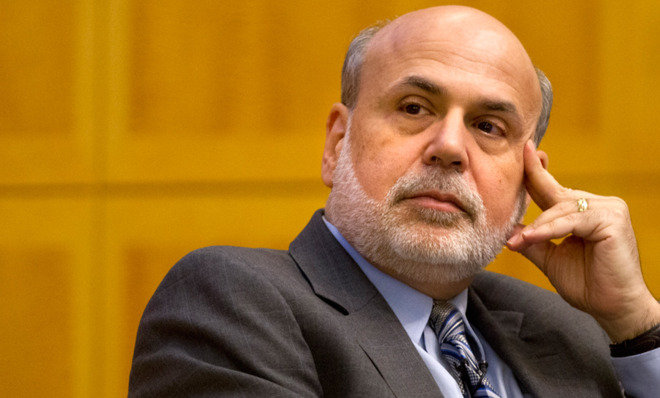Was the Fed's latest taper a huge mistake?
As emerging economies lurch toward crisis, the Fed continues to turn off the spigot

A free daily email with the biggest news stories of the day – and the best features from TheWeek.com
You are now subscribed
Your newsletter sign-up was successful
Ben Bernanke’s final policy-making meeting as chairman of the Federal Reserve resulted in another $10 billion reduction of the central bank's monthly quantitative easing purchases. They are now down to $65 billion a month, from the $85 billion of purchases the Fed was buying every month in 2013.
Many economists now expect the Fed to continue reducing purchases by $10 billion a month, so long as the unemployment rate continues to fall. This month, unemployment dipped 0.3 percent, to 6.7 percent, although alternative unemployment measures, such as the employment-population ratio, have barely improved since the 2008 bust. Furthermore, it was a rather strange month on the employment front, because of unseasonably high numbers of workers out of work due to cold weather.
But a greater worry is the effect that the Fed’s tapering may be having on markets around the world. Since the Fed’s monetary stimulus programs began, billions of dollars have left the United States, to be invested in faster-growing emerging markets such as Turkey, Argentina, Brazil, Russia, India, and China. With the Fed tapering, and interest rate hikes on the horizon, many analysts fear that those investments will be reversed, resulting in a bloodbath in emerging economies.
The Week
Escape your echo chamber. Get the facts behind the news, plus analysis from multiple perspectives.

Sign up for The Week's Free Newsletters
From our morning news briefing to a weekly Good News Newsletter, get the best of The Week delivered directly to your inbox.
From our morning news briefing to a weekly Good News Newsletter, get the best of The Week delivered directly to your inbox.
Indeed, Turkey's central bank just this week dramatically raised its benchmark interest rate in a bid to shore up the country's plunging currency, the lira.
On one hand, I think these fears are rather misplaced. It is wrong to assume that the money flowing into emerging economies is a result of the Fed. Huge quantities of American investment were flooding emerging economies long before the Fed’s quantitative easing program began. Emerging markets have been growing at a rapid clip for the last 20 or 30 years, and volcanic economic growth attracts foreign capital irrespective of what policies Western central banks are following.
Additionally, recent events that have helped rock emerging markets in Turkey (a government corruption probe) and Argentina (police strikes, looting, and rampant inflation) are not even tangentially connected to the Fed’s decisions.
Furthermore, it is not the Fed’s job to monitor or promote stability in emerging economies. The Fed’s mandate is low inflation and low unemployment in the United States.
A free daily email with the biggest news stories of the day – and the best features from TheWeek.com
But on the other hand, if the market wants to get itself into a huff due to tapering, the Fed could have just as easily taken a wait-and-see approach. By delaying tapering for at least another month, the Fed could see whether the trouble in emerging markets is hurting the United States, as well as better gauge whether the labor market in the U.S. is really improving.
Inflation remains below the Federal Reserve’s two percent target, so it is not like the central bank is up against inflationary pressure. The Fed had room to maneuver, and perhaps proceeding with another taper was a premature and risky move.
However, the Fed has room to maneuver next month, too, in case markets continue to weaken or the unemployment picture worsens.
John Aziz is the economics and business correspondent at TheWeek.com. He is also an associate editor at Pieria.co.uk. Previously his work has appeared on Business Insider, Zero Hedge, and Noahpinion.
-
 Political cartoons for February 21
Political cartoons for February 21Cartoons Saturday’s political cartoons include consequences, secrets, and more
-
 Crisis in Cuba: a ‘golden opportunity’ for Washington?
Crisis in Cuba: a ‘golden opportunity’ for Washington?Talking Point The Trump administration is applying the pressure, and with Latin America swinging to the right, Havana is becoming more ‘politically isolated’
-
 5 thoroughly redacted cartoons about Pam Bondi protecting predators
5 thoroughly redacted cartoons about Pam Bondi protecting predatorsCartoons Artists take on the real victim, types of protection, and more